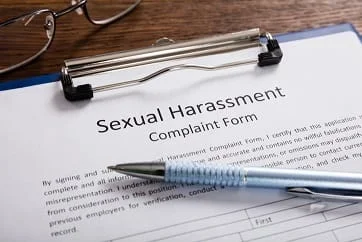Why don’t women speak up about sexual harassment? Retaliation.

Are fears of retaliation well-founded? Yes. Does that mean it’s not safe to come forward? No, but it does mean you should take extra care.
According to a comprehensive study released by the Equal Employment Opportunity Commission (“EEOC”) last year, “anywhere from 25 percent to 85 percent of women report having experienced sexual or gender harassment in the workplace.” Think about that. According to the EEOC, at least one in four women has experienced sexual harassment at work.
The behavior we’re talking about can often be commonplace. It includes things like unwanted touching, unwelcome sexual banter, and even demands for sex in exchange for continued work or advancement. Yet at least three-quarters of workplace sexual harassment incidents go unreported, according to the EEOC’s estimate.
The study found that sexually harassing behaviors are only reported occasionally:
- Unwanted touching is reported only 8 percent of the time.
- Sexually coercive behavior is reported only 30 percent of the time.
On average, the EEOC estimates, 87 to 94 percent of those experiencing sexual harassment do not file any formal complaint.
Why do so many people remain quiet about illegal behavior that can make it so much more difficult to succeed at work?
While cultural norms and personal choices play into the decision not to report sexual harassment, one major reason is fear of retaliation. That fear is justified, according to the EEOC report: Up to 75 percent of employees who speak up about sexual harassment experience some type of retaliation. This is the case even though it’s illegal to retaliate against employees for filing such complaints.
As we’ve seen in a spate of recent, highly publicized cases involving members of the media, there is often a great deal of institutional pressure to stonewall accusers in favor of company stars.
Yet, “a superstar employee that is creating that toxic work environment is probably costing that company more than he or she is bringing in,” notes the head of the National Women’s Law Center.
Sexual harassment is easiest to hide when the victim feels isolated or powerless. For that reason, women are more likely to come forward when others are doing so, or where there are institutional safeguards in place to protect her, such as a confidential Human Resources reporting process.
They’re also more likely to come forward when they have information and backup. The EEOC found that people were much more likely to make a report when sexual harassment was specifically defined.
If you have been sexually harassed and wish to report your experience, you need to be prepared to protect yourself from retaliation. A good way to do that is to speak with an employment law attorney before bringing up the issue at work. Your lawyer can help you collect evidence properly and strategize about how best to confront the problem.